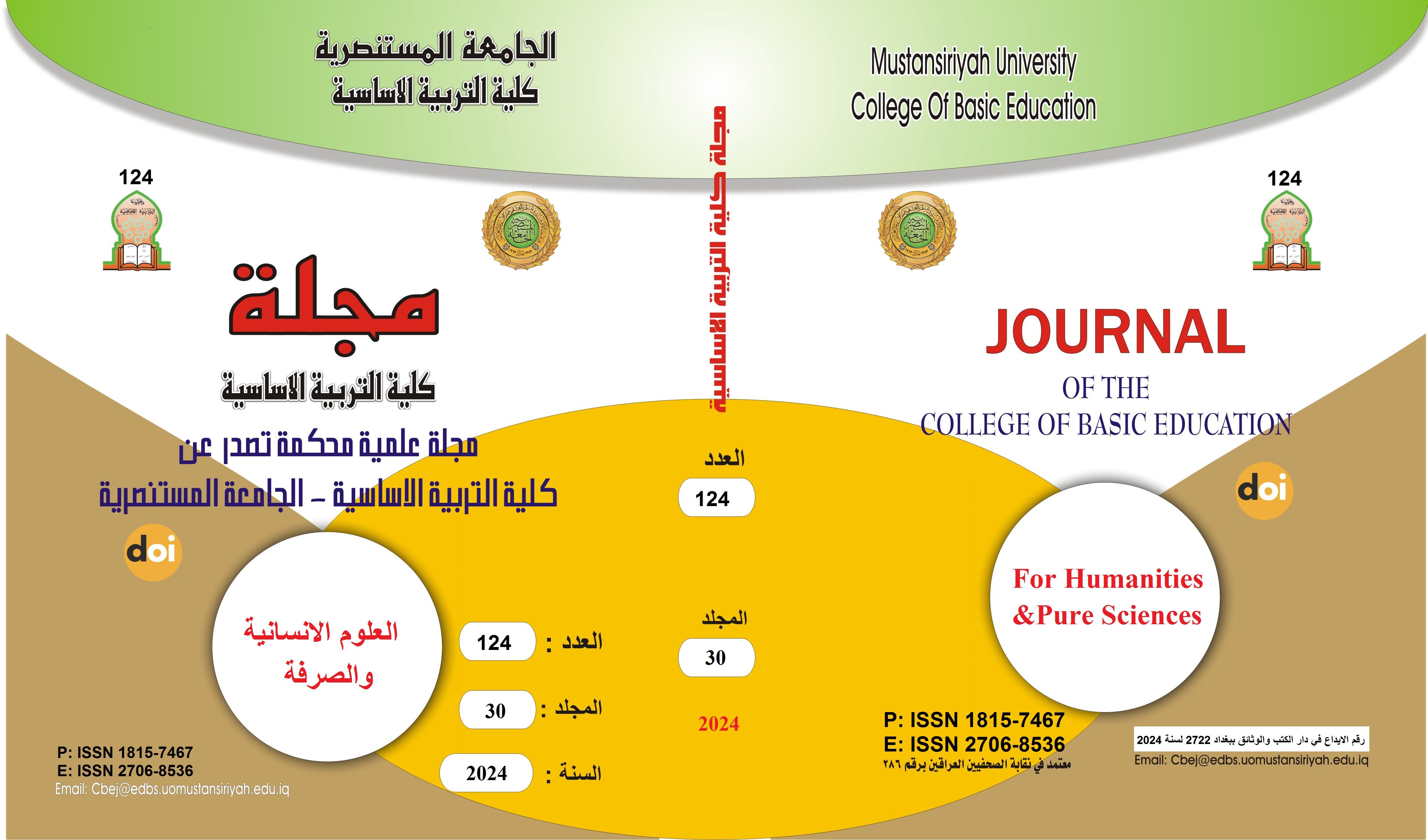The “innovative-adaptive” creative style and its relationship to psychological empowerment and solving professional problems among special education teachers
Main Article Content
Abstract
The current research aims to identify the level of :
1- The creative “innovative-adaptive” style among special education teachers.
2- The “innovative-adaptive” creative style among special education teachers according to the variable of gender (male – female).
3- Psychological empowerment among special education teachers.
4- Psychological empowerment among special education teachers according to the gender variable (males - females).
5- Solving professional problems among special education teachers.
6- Solving professional problems among special education teachers according to the gender variable (male-female).
7- The relationship between the creative “innovative-adaptive” style, psychological empowerment, and solving professional problems among male and female special education teachers.
8- The percentage of contribution of the creative “innovative-adaptive” style and psychological empowerment in solving professional problems among special education teachers.
The research sample consisted of (300) male and female special education teachers Baghdad in the Rusafa First, Second, and Third Education Directorate for the academic year 2023/2024. The researcher prepared a measure of the creative (innovative-adaptive) style according to Kirton’s (1976) theory, which consisted of (30) items with four items in front of each item. The alternatives are (applies to me a lot, applies to me to a moderate degree, applies to me to a small degree, and does not apply to me at all). As for the psychological empowerment scale, the researcher prepared it based on Spritzer’s theory (Spritzer 1995) according to four areas: (meaning, competence, independence, influence). Each domain consists of (7) items, and thus the number of items in the scale has become (28), with four alternatives in front of each item: (always, often, rarely, never). As for the scale for solving professional problems, it was prepared according to information processing theory and consists of (40) items. In front of each item are four alternatives: (Applies to me often - Applies to me - Applies to me sometimes - Does not apply to me). The researcher extracted a number of psychometric properties for the scales, such as honesty. and reliability. Then the researcher applied them to members of the research sample of special education teachers, and after collecting the data and processing it statistically using a t-test for one sample and a t-test for two independent samples, the results indicated:
1- Special education teachers have a creative (innovative-adaptive) style.
2- There are statistically significant differences in the creative (innovative-adaptive) style of male and female special education teachers according to the variable of gender and in favor of males.
3- Special education teachers have psychological empowerment.
4- There are statistically significant differences in the psychological empowerment of male and female special education teachers according to the variable of gender and in favor of females.
5- Special education teachers have a solution to professional problems.
6- There are statistically significant differences in solving professional problems among male and female special education teachers according to the variable of gender and in favor of females.
7- There is a positive correlation between the creative style (innovative - adaptive), psychological empowerment, and solving professional problems among special education teachers.
8-The creative (innovative-adaptive) style and psychological empowerment contribute to solving professional problems among special education teachers.
Article Details

This work is licensed under a Creative Commons Attribution-ShareAlike 4.0 International License.
